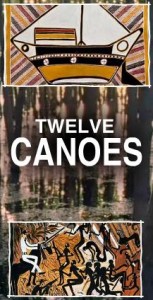Here’s a site from the New South Wales Government in Australia. It is dedicated to Aboriginal Education. It provides examples of context-based teaching and learning projects to be used. It is obvious that the values of the Aboriginal people are considered. They address Aboriginal art and languages, and contextualize math, science, and literature for the students.
Category: Module 2
I found this site that is to educate people about the Yolngu people of Ramingining in Australia’s Northern Territory. The website is a great use of technology and educating others. They have provided a study guide for teachers and students. It is quite interactive and divides up the culture so that you can explore the art, music, the people, etc. It shows what is important to the people in a very easy to follow way.
Maori Spellchecker
I thought this was quite interesting, especially considering the discussions we’ve had with regard to technology and cultural neutrality. Turns out somebody in New Zeland has the very same conserns when it comes to language bias. Be great to see something like this developed for Canadian First Nations languages. Or perhaps there already is and I am simply unaware of it. It seems like a pretty good business idea, don’t you think?
I came across the attached document and found it to be of highly relevant to our current course readings. Here is an excerpt of the announcement of the accord document to be signed at Congress:
“Montreal/May 31, 2010 – A landmark agreement on the education of Indigenous peoples in Canada will be signed June 1, at the Congress of the Humanities and Social Sciences hosted by Concordia University in Montreal. The Accord on Indigenous Education provides for a new framework under which university programs will be reviewed and partnerships with Indigenous communities forged in order to better reflect the educational purposes and values of Indigenous people. It will lead to the development of teaching methods that respect –and, indeed reflect‐ the specific cultural needs and references of First Nations people.
The agreement was developed between leading representatives of First Nations communities and The Association of Canadian Deans of Education (ACDE), which is meeting at Concordia during the 2010 Congress of the Humanities and Social Sciences, continuing through June 4.”
This accord gives one hope. I’ve attached the full announcement here:
media release-Congress Indigenous Signing (3)[1]
For the full Accord document, navigate to: http://experience.congress2010.ca/wp-content/uploads/2010/05/Congress-Indigenous-Accord.pdf
http://thesportdigest.com/article/aboriginal-stereotypes-sports-intentions-gone-horribly-wrong
I thought this was an interesting article on the naming of mascots and athletic teams after aboriginal people. The marginalization and stero-typing of indigenous peoples is discussed in this article, with a look at the research into the historical context of such naming conventions. This has been a huge debate over the years, and the author examines the factors relating to this stereotyping.
Native Nevada Classroom
http://www.unr.edu/nnap/nnc_intro.htm
“This site was developed by the Department of Teaching and Learning Technologies at the University of Nevada, Reno, as part of a statewide initiative funded by SB204.”
This site contains lesson plans, concentrating on social sciences and environmental studies. Under the Nevada Tribes tab, it has a link called Stereotyping of Native Americans. At the end of the article, it has stereotyping activities that can be done with students to educate them on the issues surrounding stereotypes and its deteremental affects.
The Basic Indian Stereotypes
The website: http://www.bluecorncomics.com/stbasics.htm
dispels the myths of native stereotypes. What I found thought-provoking was their take on Non-Native stereotypes. There is a list (and links) of presumed Native stereotypes of non-Natives. Very interesting. There are a number of informative articles and links on related topics – it is a very good read.
http://www2.brandonu.ca/library/CJNS/25.1/cjnsv25no1_pg311-335.pdf
This appeared in the The Canadian Journal of Native Studies in 2005. It is an ethnographic research study looking at “print media coverage of Aboriginal issues.” It concludes by stating that stereotyping in the media is prevalent, unsympathetic audiences are common and indifferent attitudes are widespread. Public support of aboriginal issues is generally poor and Canadians in general have little knowledge of Aboriginal concerns. It is an interesting article peering into the Media and perceptions of the public.
Media Awareness Network
http://www.media-awareness.ca/english/issues/stereotyping/aboriginal_people/aboriginal_news.cfm
I discovered this to be a great resource for Media and Education Resources for Parents and Teachers. It has a link that is dedicated to breaking the myths on Media Stereotyping of all types of minority groups. There is an article titled ‘Aboriginal People in the News’ that discusses the media portrayal of aboriginal people. It talks about how “Many of the myths and misperceptions that persist among non-aboriginal people are perpetuated by no communication, poor communication, or one-sided communication (Bud White, Royal Commission of Aboriginal Peoples, 1998). In this modules readings, a lot of the focus is on communication – how we communicate, how the media communicates, and how our perceptions are based on the information we receive.
Aboriginal Studies Web Portal
Created by professor, Matthew Ciolek of the Australian National University, the site is maintained with the Center For World Indigenous Studies’ (CWIS) Indigenous Studies WWW Virtual Library, This is an extremely useful website in that it contains links to General Indigenous Studies Resources, as well as resources Africa, Asia and the Middle East, Central; South America, Europe, and the Pacific.
The Aboriginal General Online Resources’ The Internet Guide to Aboriginal Studies guide is a useful one in that it offers resources about different aspects about Australian aboriginal Encyclopedia of Australia’s Aboriginal People. Aimed at younger students, this is an 8-volume original encyclopedia is an alphabetical reference to assist young Australians to appreciate the historic and contemporary diversity of Aboriginal and Torres Strait Islander cultures and lifestyles.
http://www.ciolek.com/WWWVL-Aboriginal.html
